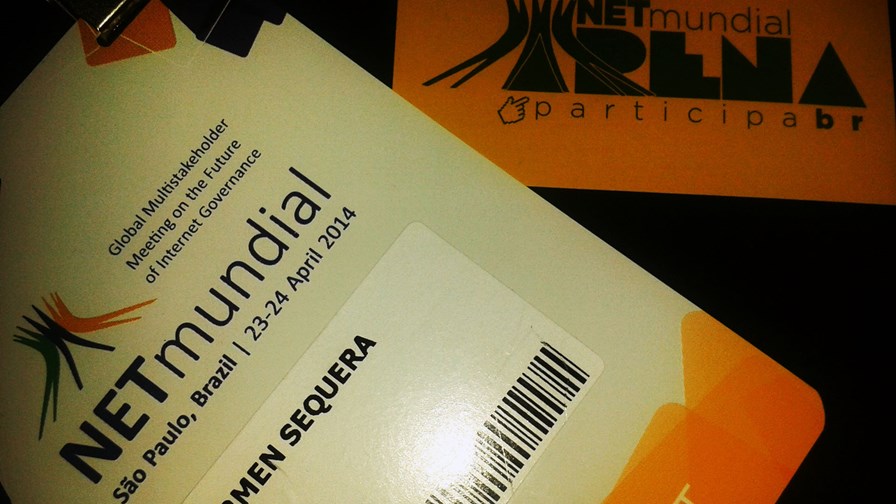
(c) Flickr/cc-licence/TedicParaguay
The scene may be set for another fractious debate over the ‘future of the Internet’ when NETmundial - the Global Multistakeholder Meeting on The Future of Internet Governance - gets down to business in São Paulo, Brazil tomorrow. The big question is: in the wake of the Snowden revelations, will the governance conference rise to the challenge and help ensure that this sort of abuse can't happen again?
Can it really be more than a year since the dramatic shout-fest that was the ITU’s WCIT (World Conference on International Telecommunications) played out in Dubai? We were all solemnly promised by the ITU hierarchy that there was to be no attempt to ‘take over the Internet’ at the conference, which had been called to draw up a new set of international telecommunications regulations. “Goodness me no. The very idea. You’d have to be stupid and out of touch to think such a thing. Internet governance was hardly on the agenda.” And so on and so forth.
There was, of course, an almost immediate attempt to drag the Internet into the proceedings.
Now usually a tub-thumping standards body can happily be left to its own devices. It can go through the motions, get a strong resolution or two agreed and then… nothing would happen. But the ITU is a little different. It’s part of the United Nations and it’s a treaty organisation, which means it has the theoretical power to forge a draft treaty and, if passed, lay an obligation on the member states to ratify.
Of course if the issues are highly contentious many member states won’t sign the final document or ratify the treaty which completely stalls progress. The US has actually spent most of the last 100 years of so shut out of the ITU and unsigned, so this approach is not unusual.
The 2012 WCIT was stalled. A bloc of countries lead by China, the Soviet Union and many Arab states wanted greater national control over domain names and other issues. And they, and Europe’s ETNO (the body representing the large European telcos) wanted discussion to open on a way to collect monies for so-called traffic imbalances on the global internet.
Little surprise then that, according to participants, the 2012 WCIT ended badly in shouting, ill temper, high emotion and even in (according to a couple of accounts) delegates so distressed by the proceedings that they were close to tears. The US and its allies more or less prevailed, keeping the internet out of the discussions, but all agreed that the governance issue had been delayed, certainly not vanquished.
It wasn’t that many of those present were actively against the rise of the Internet, it was just that they’d all like to see it cast a little differently to suit their particular interests. Fortunately for the US and its allies, who wanted to see a continuation of the multi stake-holder model, those diverse interests seemed to cancel each other out.
Then last year came the Snowden revelations which are bound to have changed the balance of power again. With countries such as Germany expressing loud concern at the Internet surveillance uncovered by Snowden, the pressure will be on the US to yield more in terms of governance.
But according to the Internet Society, the evolution of Internet Governance should be focused on two main axes:
- crafting Internet Governance principles, and
- proposing a roadmap for the further evolution of the Internet Governance ecosystem
It’s another opportunity, says the Internet Society, to put into practice the Internet's collaborative model of governance by supporting an open, bottom up, multi-stakeholder, transparent and accountable processes.
It will be interesting to see whether the society’s lofty goals define the direction of travel over the next few days, or whether the Snowden whistle-blowing on US government and US big business collaboration has tarnished the ‘bottom up’ approach. Will governments and other interested parties now be seeking a heavy dose of top down oversight in the wake of the NSA revelations?
At this stage the draft document is relatively mild in tone with little sign there that the surveillance programme has even taken place. There's still time for that to change as the conference gets under way. Will it?
Email Newsletters
Sign up to receive TelecomTV's top news and videos, plus exclusive subscriber-only content direct to your inbox.




